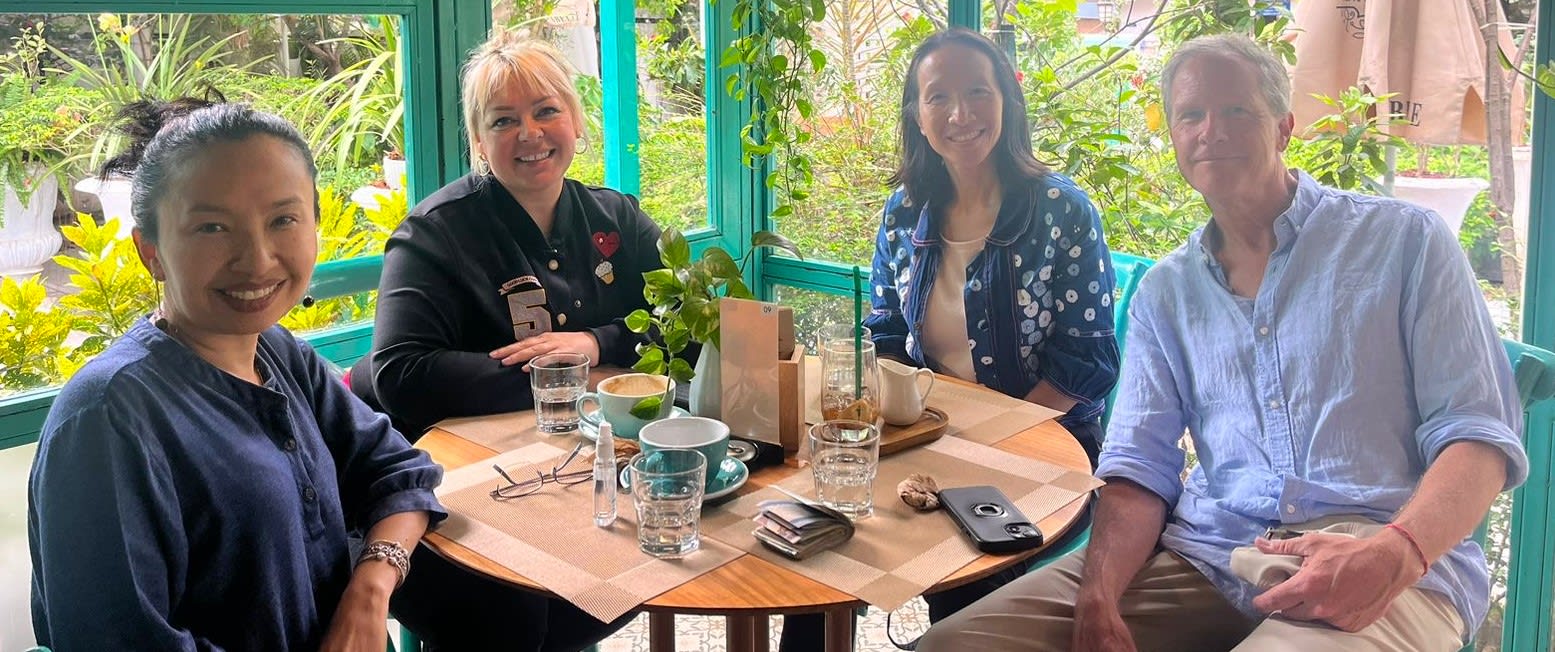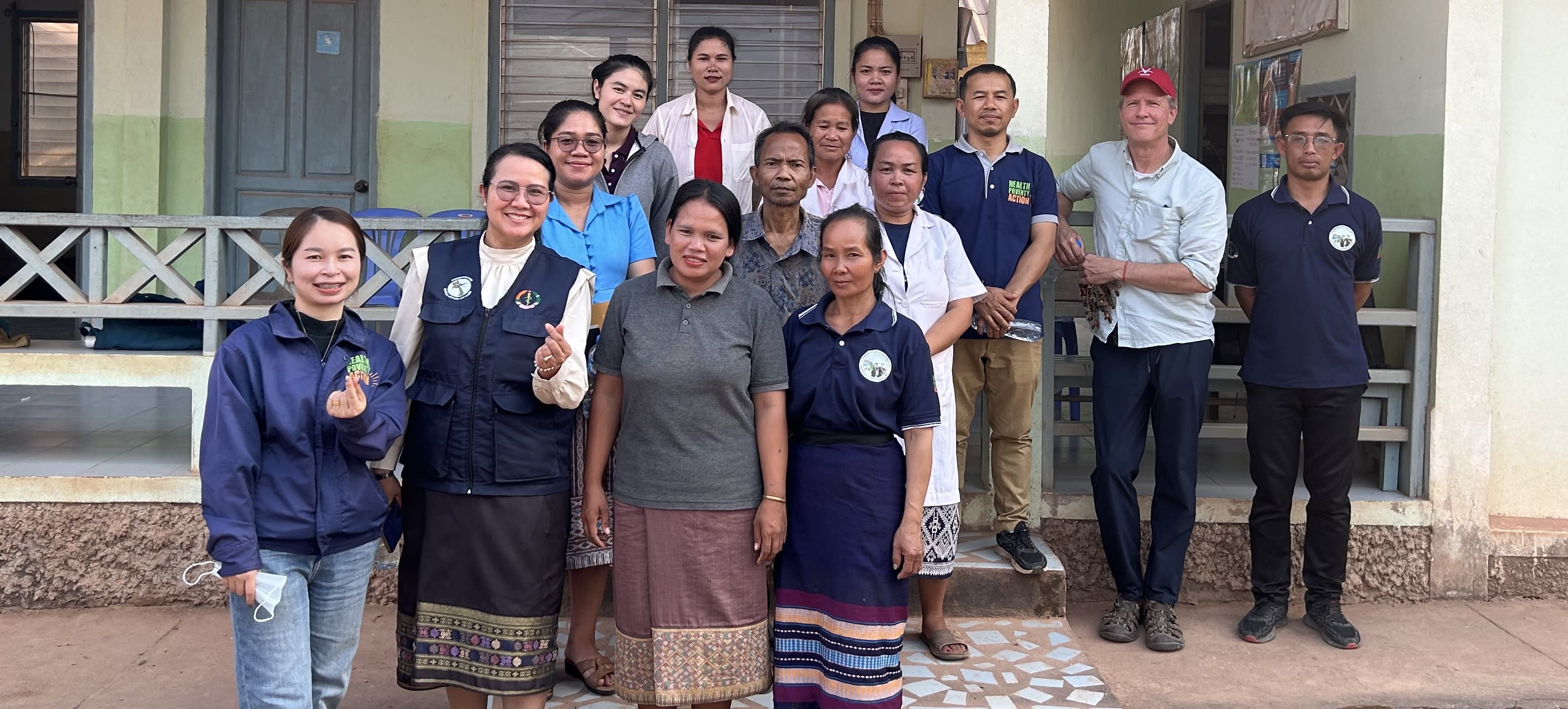#VETSVolunteerVoices aims to bring you the stories of our passionate VETS program volunteers from the field. This blog was written by Izabela Wlodarczyk, a Communications Volunteer supporting our VETS partner, CARE International, in Laos (February - June 2024).
The Essence of Capacity Building
Capacity building is a term we are acutely aware of in development circles. At VWB, we see building the capacity of our local partners as integral to reaching our big-picture goal – healthy animals, people, and environments worldwide. To us, capacity building means providing support to individuals and teams as they work on solutions together while encouraging them to consider different perspectives and unique approaches. What makes capacity building different than a typical consulting approach is that while it leans on local knowledge, it truly focuses on skill development in the process.
Partnering with CARE International in Lao PDR
CARE International in Lao PDR works to bring women and girls out of poverty through a variety of programs, including entrepreneurship, coffee farming, maternal health, and climate resilience. VWB supports CARE as a partner through our Volunteers Engaged in Gender Responsive Technical Solutions (VETS) program. This partnership strengthens CARE with guidance from skilled professionals who volunteer to share their time, energy, and expertise to support multiple local teams.

PHOTO: (L to R) Phet Sounthonnavong, VWB’s VETS Country Coordinator in Laos with VETS Volunteers Izabela Wlodarczyk (supporting CARE) and Dr. Michael Bumby (supporting HPA).
As a Communications and Media Volunteer, I share and promote best practices in messaging, social media, templating, photography, branding, and strategy. I explore various perspectives to see how content and content practices can be made more inclusive and sustainable. By applying a gender lens and climate perspective to my work, I develop content and strategies that benefit the local team, the organization, and the wider community.
A Fresh Perspective on Strategic Planning
During my time with CARE International and VWB in Vientiane, I participated in a three-day strategic planning workshop where we identified the necessary building blocks for the next five years of operation. This workshop was a great example of capacity building in action. All teams – senior management, finance, communications, field, and administrative staff – worked in groups to discuss and present challenges, opportunities, and ideas. They set long- and short-term goals and gave one another feedback.
PHOTO: Izabela (red t-shirt) leads a strategic planning workshop for CARE staff in Vientiane, Laos.
In a country where feedback can come off as criticism, my role was to listen, mediate, provide an outsider's perspective, and ask probing questions to get the ball rolling on certain topics. Sometimes, there are questions or comments that local people don’t feel comfortable making, and it can be the role of a foreign colleague to step in and absorb some of that discomfort.
Learning and Growing Together: Dr. Michael Bumby's Experience
Fellow VETS volunteer in Laos, Dr. Michael Bumby, veterinarian and MBA, had three weeks to get that same ball rolling while on assignment in Vientiane. He was tasked with providing a capacity assessment to support the small-but-mighty Health Poverty Action (HPA) team, focusing on strategic long-term planning and leadership development. After discussions with office staff and a field visit to a neighboring province, Dr. Bumby used his observations to present a snapshot of the current situation and created a plan for the team to move forward.

PHOTO: Michael (red baseball cap) with the Health Poverty Action team (a VETS partner organization) in Vientiane, Laos.
“Organizations in Laos are fundamentally similar to those in the west: Their employees are motivated when they have clear objectives, can see results of their labor, and know their efforts are recognized and appreciated,” says Dr. Bumby. “That means we need to listen to everyone in an organization, not just senior management, when assessing current capacity. And for me, the most important element of building that capacity is first making sure everyone in the organization is aware of the objectives of their organization – beyond just the mission and vision – so we can build a strong foundation.”
Moving Forward Together
While HPA works on Dr. Bumby’s list of deliverables over the next few weeks, I’ll be providing advice, feedback, and support, leading by example where appropriate. I’ve designed a social media, branding, and content creation workshop based on my years of experience in this field and the concepts I learned from my recent graduate studies. After all, knowledge is meant to be shared.
In the words of Dr. Bumby, “When engaging in capacity building, we need to speak to everyone in the organization, not just senior management, to assess its current capacity. It is not wise to build upon weak foundations. It is imperative to determine the status of an organization before developing any new plans.”
As we continue our work, it’s clear that capacity building is more than a strategy; it’s a commitment to sustainable growth, innovation, and positive change. Together, we are building a better tomorrow.
VETS is a 7-year initiative (2020-2027) to improve the economic and social well-being of marginalized people, particularly women and girls, in 6 countries across Africa and Asia. In collaboration with local partners, the program is implemented through 190 Canadian volunteers on international assignment and is generously funded by Global Affairs Canada. Learn more.





